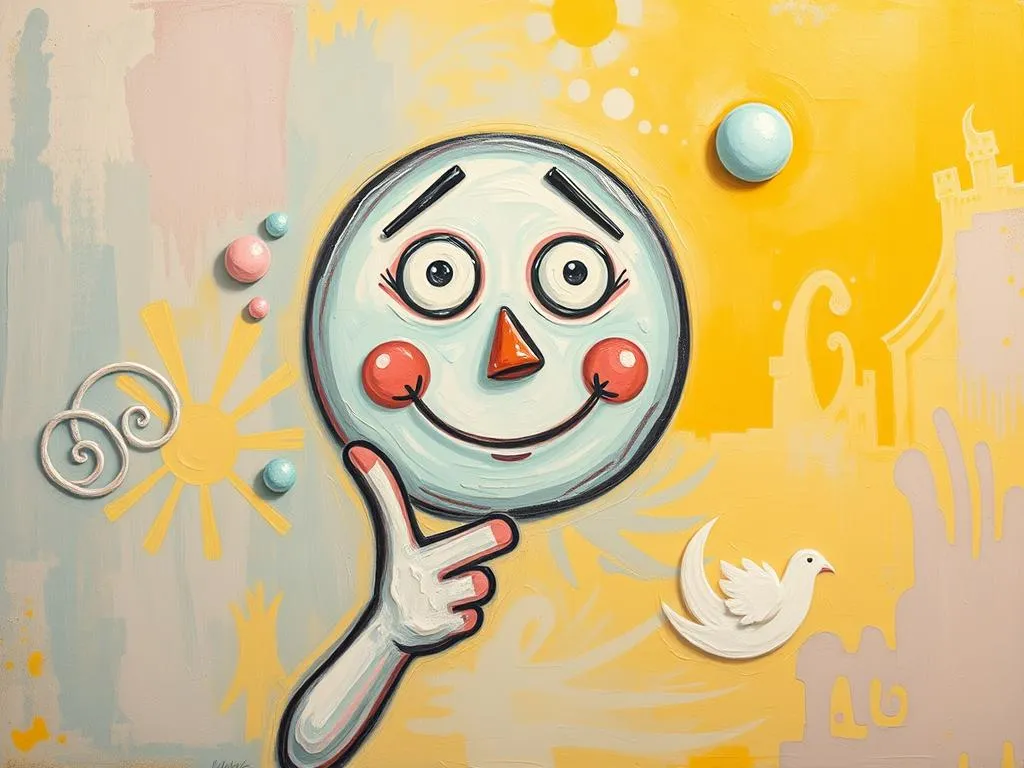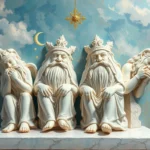
Have you ever woken up from a dream feeling unsettled, your heart racing with emotions tied to your appearance? You might have found yourself in a situation where you were judged or criticized for how you looked, leaving you with lingering feelings of inadequacy. Dreams about disliking one’s appearance can be vivid and emotionally charged, often reflecting deeper aspects of our psyche and personal experiences. They serve as a mirror to our inner thoughts, fears, and societal pressures regarding beauty and self-worth.
In a world inundated with images of perfection, it’s no surprise that many of us grapple with self-image issues. Our dreams can serve as a powerful outlet for these conflicts, providing a unique lens through which we can explore our feelings about ourselves. In this article, we’ll walk through the symbolism embedded in these dreams, share relatable scenarios, and uncover pathways for personal growth.
Reflections in the Mirror: The Symbolism of Dislike
When it comes to dreams where we dislike our appearance, the mirror becomes a potent symbol. It reflects not just our physical selves but also our emotional states and internal conflicts. This dream can often signify a struggle with self-acceptance and confidence. The feelings of dissatisfaction or discomfort in these dreams may indicate a disconnect between how we perceive ourselves and how we wish to be seen by the world.
Cultural influences play a significant role in shaping our perceptions of beauty. In many societies, there is a prevalent standard of beauty that can be difficult to attain. When we dream of disliking our appearance, it often suggests an internalization of these external pressures. Our dreams may echo societal expectations, revealing a fear of judgment or a longing for validation.
Moreover, these dreams can also be tied to psychological concepts such as the shadow self, a term coined by Carl Jung. The shadow self comprises the parts of ourselves that we might reject or hide, including our insecurities and perceived flaws. Dreaming of disliking one’s appearance can be a manifestation of this shadow, urging us to confront and integrate these aspects of ourselves rather than suppressing them.
Another critical symbol in this context is comparison. In waking life, we often compare ourselves to others, whether through social media or personal encounters. This comparison can lead to feelings of inadequacy, and our dreams might bring these feelings to the forefront. Ultimately, the symbolism in these dreams calls for introspection, urging us to examine our beliefs about beauty and self-worth.
Behind the Veil: Personal Experiences and Scenarios
To better understand the nuances of dreams about disliking our appearance, let’s explore some scenarios that might resonate with your experiences. Each of these dreams reflects common themes associated with self-image and acceptance.
1. The Unwanted Makeover
In this dream, you find yourself in a salon where an aggressive stylist insists on giving you a makeover. You look in the mirror and see a version of yourself that feels foreign and uncomfortable. This scenario suggests that you may feel pressured to conform to societal standards of beauty. The dream serves as a reminder to appreciate your uniqueness rather than change yourself to fit in.
2. The Social Gathering
Imagine attending a party where everyone seems to be dressed to the nines. You look at yourself in a mirror and feel out of place, wishing for a different outfit or appearance. This scenario highlights feelings of insecurity and comparison. It may indicate a fear of judgment from others and the desire for acceptance. It’s an invitation to explore where these feelings stem from and how you can cultivate self-confidence.
3. The Reflective Pool
In a dream, you approach a serene pool of water, only to see a reflection that you dislike. You might feel surprised or repulsed by what you see. This dream suggests a need for deeper self-reflection. Ask yourself: Are there aspects of your life or personality that you’ve been avoiding? This dream encourages you to dive below the surface to explore your emotions.
4. The Critical Friend
You dream of being in a conversation with a friend who suddenly critiques your appearance harshly. This scenario brings forth feelings of vulnerability and fear of rejection. It may indicate that you are projecting your insecurities onto others or that you need to evaluate the influence of your social circle. Surrounding yourself with supportive individuals can help bolster your self-esteem.
5. The Disappearing Features
In a particularly distressing dream, you might notice that your facial features are fading or morphing into something unrecognizable. This dream can symbolize a fear of losing your identity or not being seen for who you truly are. It’s an invitation to reclaim your sense of self and acknowledge that your worth transcends physical appearance.
Each of these scenarios highlights the emotional weight tied to our physical selves. They serve as a reminder that our dreams can provide valuable insights into our feelings of self-worth and identity.
Embracing Your Authentic Self: Pathways to Growth
Now that we’ve explored the symbolism and experiences associated with disliking our appearance in dreams, it’s time to shift our focus to personal growth. These dreams often indicate areas where we can foster self-acceptance and personal empowerment.
1. Cultivate Self-Compassion: The first step toward addressing feelings of inadequacy is to practice self-compassion. Instead of harshly criticizing yourself, treat yourself as you would a friend. Acknowledge your feelings without judgment and remind yourself that everyone has insecurities. This practice can create a nurturing inner dialogue that promotes healing.
2. Challenge Societal Norms: It’s important to recognize that societal standards of beauty are often unrealistic and ever-changing. Reflect on the messages you receive from media and peers. Challenge these norms by surrounding yourself with diverse representations of beauty. Embrace your individuality and remember that true beauty comes in many forms.
3. Journaling and Reflection: Engage in reflective journaling to process your dreams and emotions. Write about your feelings regarding your appearance and explore the roots of these thoughts. This practice can help you gain clarity and allow you to confront any negative beliefs you hold about yourself.
4. Positive Affirmations: Implementing positive affirmations into your daily routine can be incredibly powerful. Create statements that reinforce your self-worth, such as “I am enough just as I am” or “My beauty is unique.” Repeating these affirmations can gradually shift your mindset and help you embrace your authentic self.
5. Seek Professional Support: If feelings of self-doubt and dissatisfaction persist, consider seeking support from a mental health professional. Therapy can provide a safe space to explore your emotions and develop healthy coping strategies. A therapist can help you unpack the layers of self-image issues and guide you toward self-acceptance.
In conclusion, dreams about disliking one’s appearance can feel unsettling, but they offer profound opportunities for self-exploration and growth. By understanding the symbolism behind these dreams and recognizing the societal influences that shape our perceptions, we can embark on a journey toward self-acceptance. Remember, the path to embracing your authentic self is a gradual process filled with challenges and triumphs.
As you navigate this journey, hold onto this reflection: True beauty radiates from within, and it is our unique qualities that make us truly remarkable. Embrace your individuality, and allow your inner light to shine brightly.







